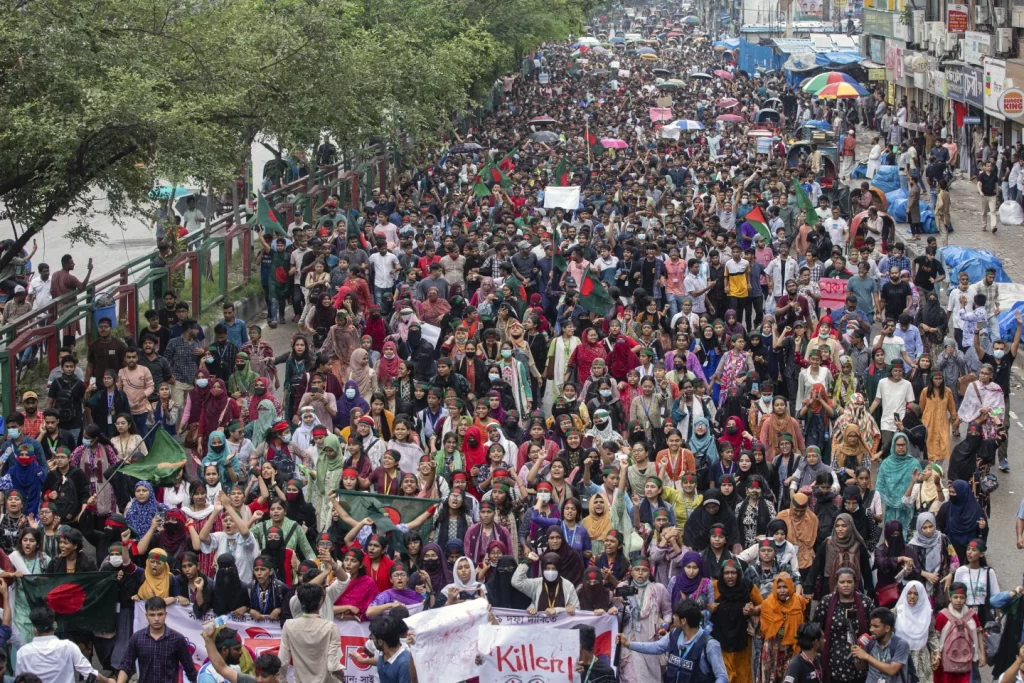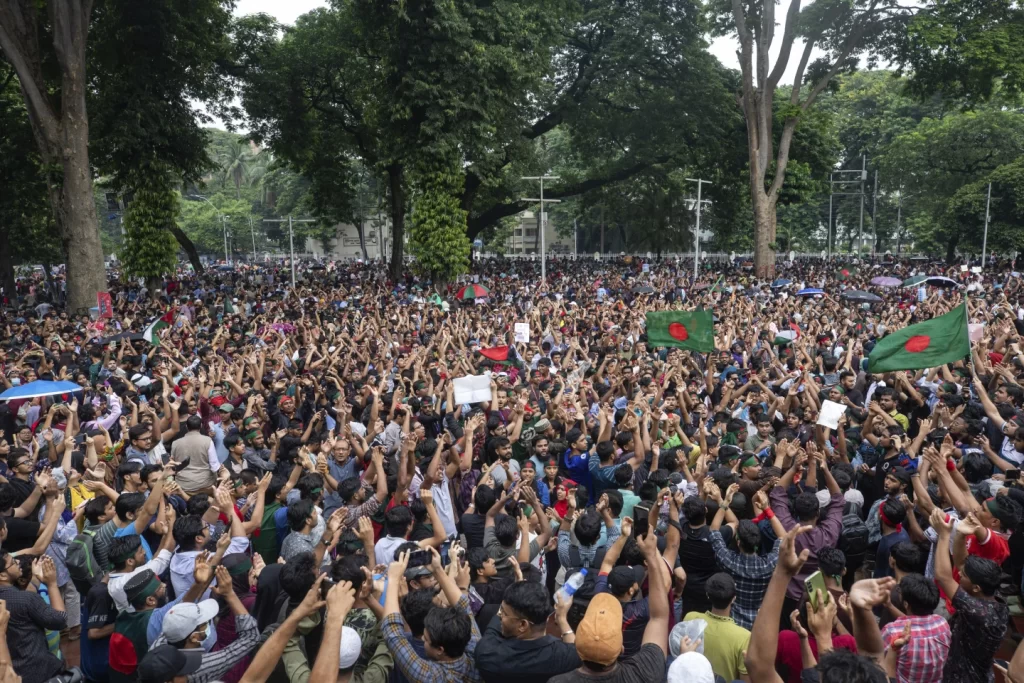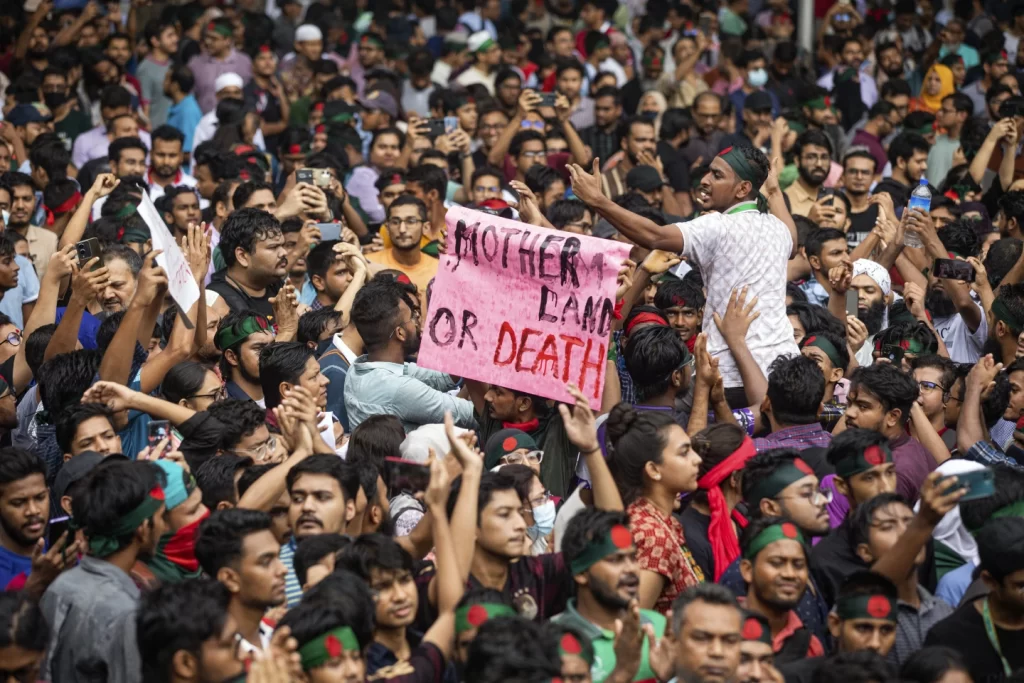Thousands of protesters gathered peacefully in Bangladesh’s capital, Dhaka, on Saturday, demanding justice for over 200 students and others killed during protests last month. The demonstrations, which began as a student movement against a government job quota system, have now expanded to include broader segments of society calling for Prime Minister Sheikh Hasina’s resignation.

While the Dhaka protest remained peaceful, violence erupted in other parts of the country. In Cumilla, eastern Bangladesh, the Prothom Alo newspaper reported that at least seven protesters were hit by bullets when pro-ruling party groups allegedly opened fire on them. At least 30 protesters were reportedly injured in the incident, though a local ruling party leader denied these allegations.

The ongoing unrest stems from student protests that began last month demanding changes to the government job quota system. The situation escalated on July 15 when students at Dhaka University clashed with police and ruling party activists. Since then, over 200 people have died, and thousands have been injured. The government’s response, including closing educational institutions, blocking internet access, and imposing a shoot-on-sight curfew, has further inflamed tensions.
Prime Minister Sheikh Hasina offered to talk with student leaders, but protest coordinator Nahid Islam rejected the offer, stating on Facebook that “One cannot ask a killer government for justice or sit for talks with them.” The protesters have now condensed their demands to a single point: the resignation of Hasina and her administration.

In response to the growing unrest, Bangladesh’s military chief, Gen. Waker-Uz-Zaman, has directed army officers to safeguard public safety and secure key state installations. The ruling Awami League party has called on its supporters to demonstrate across the country on Sunday, potentially setting the stage for further confrontations.
The opposition Bangladesh Nationalist Party and the banned Jamaat-e-Islami party have been accused by the government of instigating violence, allegations both parties deny. Opposition leader Mirza Fakhrul Islam Alamgir has expressed continued support for the protesters.
AP



